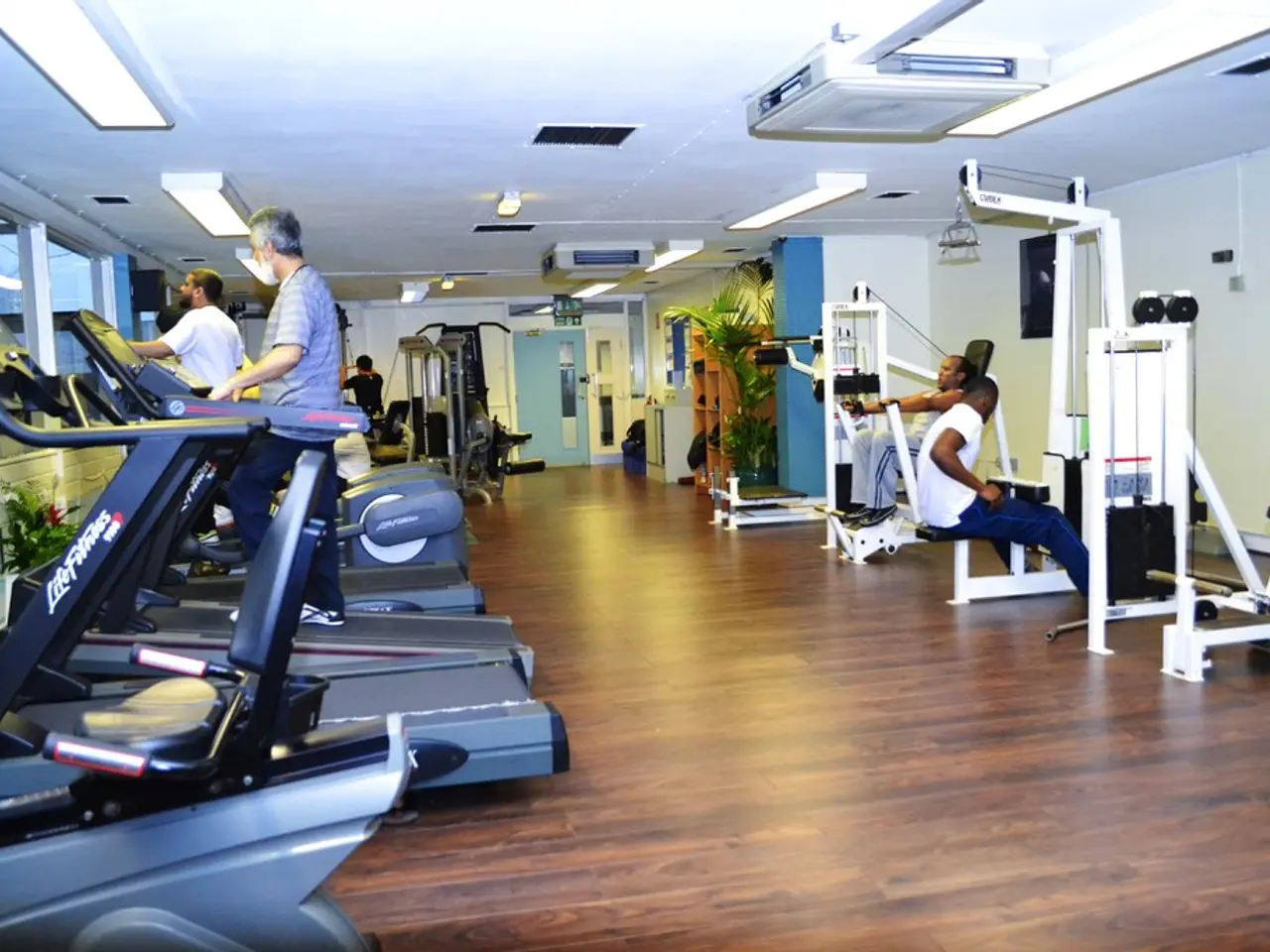Unleashing the Depths of Fitness: Embrace Functional Strength, Mental Fortitude, and Emotional Grace for an All-Encompassing Journey to Wellness Encapsulating Bodily Might, Mental Clarity, and Emotional Balance Beyond the Realm of Typical Bodybuilding.
The Vast Terrain of Fitness
Transforming Fitness Perspectives: Exploring Health and Vitality Beyond Muscle Building
When the term "fitness" is mentioned, people often picture bodybuilders posing in front of mirrors, doing heavy weightlifting to amass muscle. But fitness is a multi-faceted concept that transcends the world of bodybuilding, encompassing diverse facets of physical, mental, and emotional well-being, with a focus on a holistic approach to health.
Grasping Strength: More Than Muscle Mass
Strength is typically synonymous with muscle size, but true strength is about functionality. It involves:
Functional Strength: Capability to perform daily tasks effortlessly, such as lifting, bending, and climbing stairs.
Mental Strength: Courage in the face of adversity, which plays a crucial role in maintaining motivation and overcoming obstacles.
Emotional Strength: Power to manage stress, forge connections, and maintain a positive disposition.
Recognizing the nuances of strength allows individuals to establish personalized, meaningful fitness goals.
The Importance of Wellness
Wellness is a state of being that encompasses physical health, mental acuity, and emotional balance. It aims at overall life satisfaction rather than merely the negation of illness. Crucial components of wellness include:
Physical Wellness: Regular exercise, nutritious diet, and adequate sleep contribute to physical health. Engaging in activities that bring pleasure-such as yoga, hiking, dancing, or swimming- Provides a boost to physical wellness.
Mental Wellness: Involves techniques that foster cognitive growth, including mindfulness, meditation, and continuous education. Mental wellness helps in reducing anxiety and enhancing focus.
Emotional Wellness: Developing emotional resilience entails nurturing relationships, expressing feelings, and seeking help when necessary. This is indispensable for overall well-being.
The Myriad Paths to Fitness
1. Functional Training
Functional training centers on exercises that mimic everyday activities. This approach increases strength, flexibility, and coordination, thereby making daily tasks simpler and safer. Seasoned use of bodyweight exercises, resistance bands, and stability balls can improve functional fitness.
2. Mind-Body Practices
Activities such as yoga and Pilates focus on the bond between mind and body. These practices enhance flexibility, balance, and core strength while promoting mental clarity and emotional stability. They excel in reducing stress and enhancing overall wellness.
3. Cardiovascular Fitness
Cardio pursuits, such as jogging, cycling, or swimming, boost heart health and endurance. Consistent aerobic exercise not only supports physical fitness but also releases endorphins, which elevate mood and mental well-being.
4. Leisure Activities
Participating in sports or recreational activities—regardless of whether it's joining a local soccer league, hiking with friends, or dancing— injects an element of fun into fitness. These activities foster social bonds, which play a vital role in emotional wellness.
Establishing Realistic Goals
Dedication to a robust and multifaceted approach to fitness necessitates setting realistic and achievable goals. Focus on gradual improvement instead of abrupt transformations. Reward minor victories to sustain motivation and create a sustainable routine.
In Conclusion: A Comprehensive Approach to Fitness
Fitness transcends simple muscle building or weightlifting. It is a holistic odyssey that blends strength, overall well-being, and personal growth. By acknowledging the various dimensions of fitness and prioritizing overall wellness, individuals can craft a healthier, more enriching lifestyle. Immerse yourself in this adventure, experiment with various activities, and redefine what fitness signifies for you.
Addendum:
- Prioritize dynamic, biomechanically sound exercises when developing functional strength.
- Incorporate deliberate stretches and flexibility routines to maintain joint health and range of motion.
- Use mindful movement practices, structured yet flexible training regimens, and stress reduction techniques to cultivate mental resilience.
- Opt for enjoyable, sustainable physical activities to foster long-term adherence and emotional satisfaction.
- Address emotional well-being and focus on hormonal health, sleep quality, and stress management for emotional balance.
- Embrace comprehensive lifestyle changes that prioritize nutrition, sleep, hormonal balance, hydration, and recovery strategies for overall wellness.
- A holistic approach to fitness encompasses not just muscle building, but physical, mental, and emotional well-being.
- Functional strength is about the capability to perform daily tasks effortlessly, such as lifting, bending, and climbing stairs.
- Mental strengthplay a vital role in maintaining motivation and overcoming obstacles.
- Emotional strength involves managing stress, forging connections, and maintaining a positive disposition.
- Wellness aims at overall life satisfaction rather than merely the negation of illness.
- Physical wellness is sustained through regular exercise, nutritious diet, and adequate sleep.
- Mental wellness can be fostered through techniques such as mindfulness, meditation, and continuous education.
- Emotional wellness is developed by nurturing relationships, expressing feelings, and seeking help when necessary.
- Functional training targets exercises that mimic daily activities, increasing strength, flexibility, and coordination.
- Mind-body practices like yoga and Pilates promote mental clarity, emotional stability, flexibility, and balance.
- Cardio exercises, such as jogging, cycling, or swimming, enhance heart health and endurance.
- Engaging in leisure activities fosters social bonds, which contribute to emotional wellness.
- To maintain a sustainable fitness routine, it's crucial to set realistic and achievable goals, engage in enjoyable activities, and prioritize overall wellness for a healthier, more enriching lifestyle.







